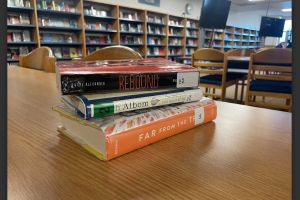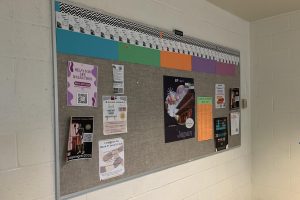Does stress cause students to procrastinate?
Procrastination is a problem for many students. (Photo provided by Creative commons)
January 22, 2016
With the latest technology, students can be easily distracted. However, when faced with a difficult task, students may put off their objectives because it may be too daunting or just plain stressful.
For example, during midterms, students may find comfort in looking at their smartphones rather than studying for their hardest exam.
Health and Wellness coordinator Sean O’Leary says that students may procrastinate to delay their stress, or fears.
“[For example], if you have anxiety about going to the dentist, it’s human nature to put that off as long as possible. […] it’s possible that the process of putting that off, exacerbates the situation,” said O’Leary.
In terms of school work, O’Leary says students may not study for an exam because they fear not doing well. However, if they put off studying, it can lead to poor grades on exams.
Although there is much procrastination among students, O’Leary admits that there are many temptations.
“[Students] can simply pull the device out of [their] pockets, and [they] are talking to friends like that. So I think it’s a lot different from twenty years ago than it is now,” said O’Leary.
O’Leary also added that social media platforms are one of the many sources of procrastination.
“It’s so possible to get distracted […]. Facebook, Instagram, all those things. They are always available to hang out and chat with [others],” said O’Leary.
Additionally, he believes that as students get older, they will see how getting ahead on work and studying will help them in the long run. When students start studying for tests and exams in advance, and they do well, he thinks they will be able to see how time management can benefit them. He believes that by doing this, students could find a way to make this a routine.
To prevent students from falling behind, O’Leary has a few personal tips that he believes will help.
“It is easy to become overwhelmed thinking about five, six, seven, exams. So if [students] make a list, [they can narrow it down],” said O’Leary.”[…] Its very similar to what runners do, they don’t think [about] twenty six miles […], they have mini milestones the whole way. Narrow it down [into] manageable segments.”
Furthermore, by making a list, O’Leary believes that with each objective they complete they are gaining momentum to finish everything they need to get done. In fact, he says that if students start by doing what they want to do the least, the rest of their objectives will seem easier.
“I look at [the list], and I look at the thing that I’m most dreading, we generally always save that for last. I’m telling you do it first,” said O’Leary.
As for head of guidance, Wendy Pechacek, she has a few similar tips for students who struggle with procrastination.
“Make a to-do list, but only put the things on there that you know you have been putting off. […], if you just put the things that you have to do, then it’s a little bit more of a serious exercise,” said Pechacek.
Additionally, she also likes the idea of doing what you want to do the least first, and therefore, students may reward themselves afterwards.
“Use [the work] that is causing you to procrastinate as a reward, but only if you do something that you don’t want to do first,” said Pechacek.
Click here to see a video on the procrastination habits of students at WA!







